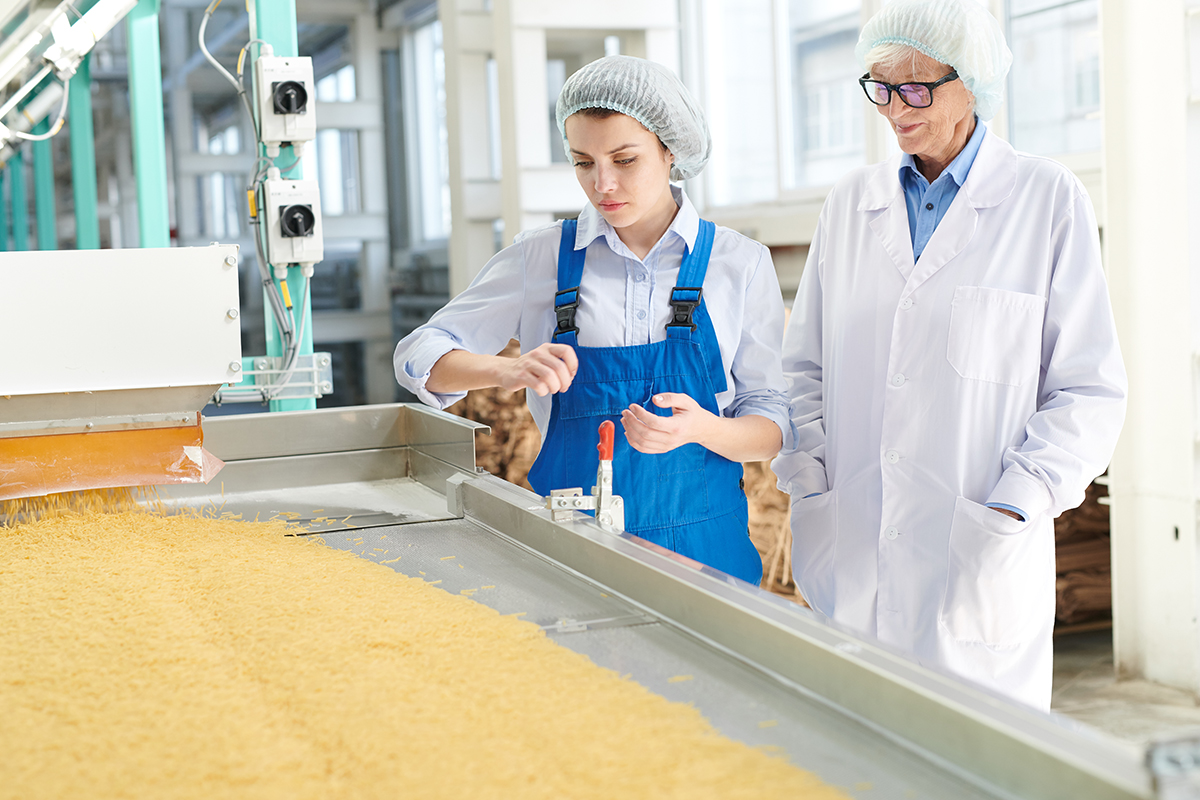Last Updated on May 2, 2024 by Admin
The journey from farm to fork is paved with stringent standards and regulations designed to ensure the safety and quality of food products. For businesses in the food processing sector, following these regulations and obtaining the proper certifications required for food industry in India is a critical step towards building trust with consumers and securing a foothold in the competitive market. This article looks into the essentials of food certification in India, offering insights into the types of certifications available, the requirements for getting them, and the steps involved in the certification process.
Types Of Food Certifications
There are many types of food certifications, each helping ensure that our food is safe, high-quality, and trustworthy.
-
FSSAI Licensing
The Food Safety and Standards Authority of India-FSSAI licence is the core of food certification in India. This licence is mandatory for every food business operator in the country. It acts as the primary certification required for food industry operations. It ensures that the food is safe to eat and meets the quality standards the government sets.
-
ISO 22000: Food Safety Management:
ISO 22000 certification outlines the requirements for a comprehensive food safety management system. It pertains to every organisation in the food chain. It promotes their ability to control food safety risks and ensures that food is safe for people to eat.
-
HACCP (Hazard Analysis Critical Control Point):
The HACCP method is a planned, preventative way to keep food from hazards. It identifies the physical, chemical, and biological risks/hazards in the production process that could make the end product unsafe and also suggests ways to lower/eliminate these risks to a safe level.
-
Organic Certification:
For businesses dealing in organic food products, organic certification verifies that their products have been produced using environmentally and animal-friendly farming methods. This certification is increasingly important in India, where consumer demand for organic products is rising.
-
AGMARK certification:
It is for agricultural produce and assures that agri produce will be confirmed to the Directorate of Marketing & Inspection(DMI), Department of Agriculture, Cooperation and Farmers welfare under Agricultural Produce(Grading Marking)Act, 1937.
-
BIS (Bureau of Indian Standard):
It grants licence to manufacturing covering every industrial discipline but FSSR regulation 2011 prescribed mandatory certification for certain food products like infant formula, milk cereal/processed cereal based weaning food, packaged drinking water/mineral water, milk powder(SMP/Partly SMP), condensed milk, partly skimmed and skimmed condensed milk.
What are the Requirements for Food Industry Certification
The journey to obtaining certifications required for food industry in India involves several key steps and adherence to specific requirements.
-
Implementation of Safety and Quality Standards
Businesses must demonstrate a robust implementation of safety and quality management systems tailored to their operations. It includes establishing procedures for hazard analysis, risk assessment, and control measures to ensure product safety and quality.
-
Compliance with Legal Regulations
Adhering to the Food Safety and Standards Act, 2006, and other relevant legislation is mandatory. It includes compliance with standards for additives, labelling, packaging, and more, ensuring that businesses operate within the legal framework.
-
Documentation and Record Keeping
Maintaining detailed records of food safety management activities, including training logs, hazard analysis, and compliance reports, is crucial. These documents play a significant role during the certification audit process.
-
Staff Training and Competence
Ensuring that staff are adequately trained in food safety practices and understand the regulatory requirements is essential. Competent personnel are the backbone of any successful food safety management system.
How to Get Certification
Understanding the path to achieving certification required for food industry in India involves a structured approach
-
Identify the Needed Certification
Start by identifying which certifications are most relevant to your business based on the type of food processing activities you undertake and the market requirements. For instance, obtaining organic certification demonstrates adherence to specific production standards if your business focuses on organic products.
-
Prepare Your Business
Align your business practices with the standards required for certification. It might involve revamping your food safety management systems, training employees, or changing production processes.
-
Documentation
Compile and organise all necessary documentation demonstrating your compliance with the standards. This will be critical during the audit process.
-
Apply for Certification
Submit your application to the relevant certification body with the required documentation and application fee.
-
Audit Process
The certification body will comprehensively audit your business practices, reviewing documentation and assessing on-site practices against the certification standards.
-
Certification and Continuous Improvement
You will get your certification upon successful completion of the audit. It’s crucial to view this not as the final step but as part of an ongoing process of continuous improvement and compliance.
Read Also – Various Kinds of Food Processing Technology Course from The House Of FICSI
Conclusion
The journey towards achieving the certification required for food industry operations in India emphasises the adherence to standards and the cultivation of a profound understanding and commitment to food safety and quality. The right training serves as the keystone in preparing businesses for the rigorous process of obtaining food certification in India. It equips teams with the necessary knowledge, skills, and competencies to meet and exceed the stringent requirements set forth by regulatory bodies. Therefore, investing in comprehensive training programs is indispensable for any entity aiming to secure the certifications required for food industry in India. This educational foundation paves the way for certification success. It promotes continuous improvement and excellence in food safety practices, ensuring businesses adhere to regulations and contribute positively to the industry’s overall quality and safety standards.













